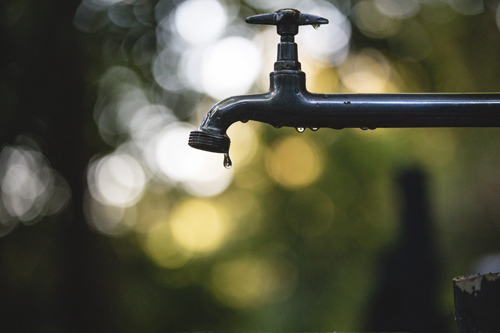
THE PRICE OF SAFE WATER? $US150 billion a year according to a World Bank report. PICTURE: Luis Tosta/Unsplash
Countries need to quadruple spending to $US150 billion a year to deliver universal safe water and sanitation, helping to reduce childhood disease and deaths while boosting economic growth, said the World Bank.
Investments should be better coordinated and targeted to ensure services reach the most vulnerable, and governments need to engage the private sector more closely to meet the high costs, said the World Bank in a report released on Monday.
“Millions are currently trapped in poverty by poor water supply and sanitation,” Guangzhe Chen, senior director of the World Bank’s global water practice, said in a statement.
“More resources, targeted to areas of high vulnerability and low access, are needed to close the gaps and improve poor water and sanitation services.”
The high cost of clean water risks jeopardising the ability of countries to meet the United Nations’ Sustainable Development Goal of providing access to safe and affordable sanitation for all by 2030, said the World Bank.
More than three quarters of those without piped water supplies live in rural areas, where only 20 per cent have access to “improved sanitation” said the report. In cities, poor people are up to three times less likely to have piped water than people in better off areas.
The risk of diarrhoeal diseases and malnutrition caused by unsafe water and poor sanitation is creating a “silent emergency”, with stunted growth affecting more than 40 per cent of children under five in countries including Guatemala, Niger, Yemen and Bangladesh, said the report.
It said under-nutrition could have long-term effects on children, including poor mental development and reduced ability to work, which would eventually affect economic development.
Some countries fail to maintain infrastructure or struggle to cope with growing populations. Nigeria provided piped water to fewer than 10 per cent of city dwellers in 2015, down from 29 per cent 25 years earlier. In Haiti, only seven per cent of households have piped water, compared to 15 per cent previously.
“Water and sanitation services need to improve dramatically or the consequences on health and well-being will be dire,” said Rachid Benmessaoud, Nigeria country director for the World Bank.
In some countries, tap water is even more unsafe than pond water, with around 80 per cent of Bangladesh’s piped supplies contaminated by Ecoli bacteria, said the report.
It urged governments to better inform people and encourage more household water treatment.
Providing piped water in cities could generate economies of scale, the bank said, urging greater private-sector involvement in urban water provision where recovering costs may be easier.
Researchers, decision makers and aid specialists are meeting in Stockholm for the annual World Water Week where they will focus on how to reduce waste in water use.
Water and sanitation improvements should be linked to health programmes to better tackle disease and malnutrition, said the World Bank report.
“Renewed efforts are needed to address those populations at greatest risk of death and disease due to inadequate water supply, sanitation and hygiene, which threatens human capital and economic development,” it said.






